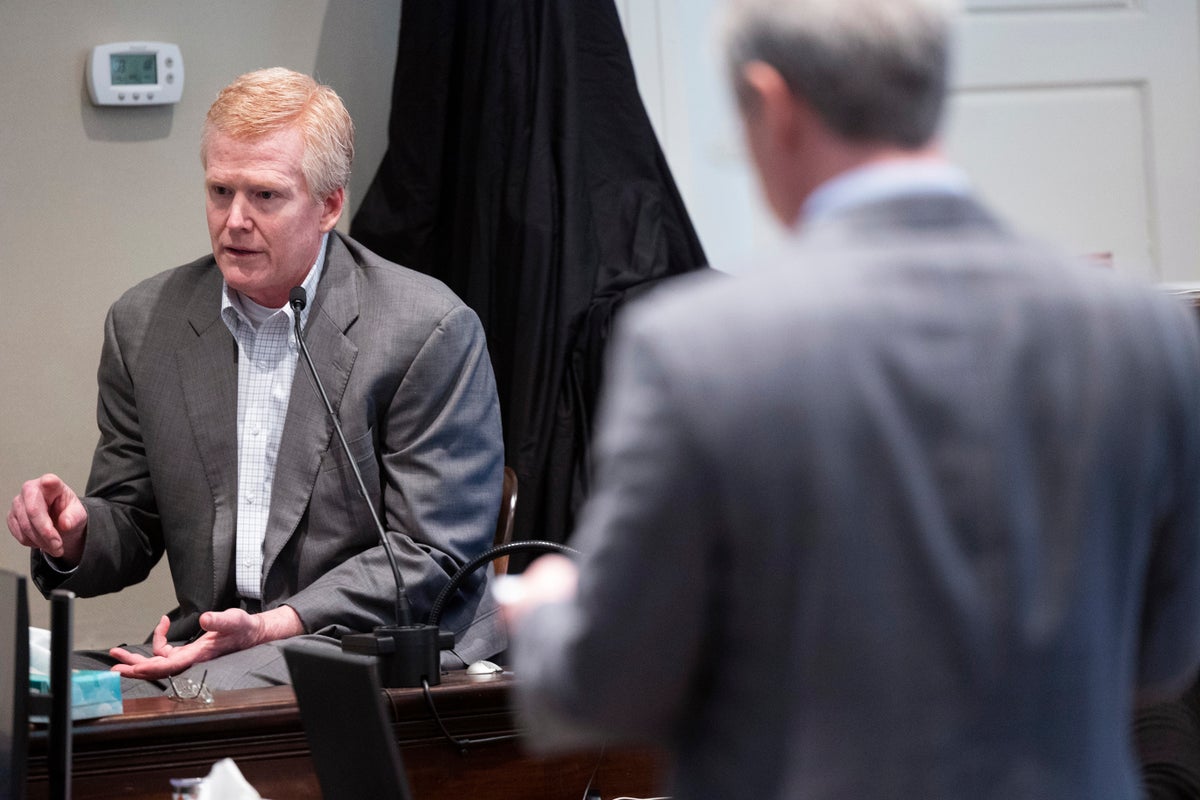
Prosecutors produced no direct evidence linking South Carolina attorney Alex Murdaugh to the killings of his wife and son, yet a jury took less than three hours to convict him — thanks, in large part, to the defendant himself.
“It came down to just a couple of key pieces of evidence. And those were: the cellphone video ... that placed the defendant at the scene of the crime ... the defendant’s denial to law enforcement agents that he had been at the kennels with his wife and son that night, and then finally, his testimony on the stand,” said Jessica Roth, a Cardoza School of Law professor who followed the trial.
The quick verdict suggests that despite weeks of testimony, dozens of witnesses and hundreds of pieces of evidence, the jury ultimately didn’t see it as a complicated case, Roth added.
Before being sentenced on Friday to life in prison without parole for the shooting deaths of his 22-year-old son and his 52-year-old wife, Murdaugh maintained his innocence, telling the judge he would never hurt them. Defense attorneys have vowed to appeal; they say the judge’s decision to allow evidence of other crimes that Murdaugh has been accused but not convicted of tainted the case.
Observers say Murdaugh did himself no favors by taking the witness stand, where he admitted to stealing money from clients and lying to investigators about being at the kennels with his wife, Maggie, and son Paul shortly before their killings. His testimony opened him up to intense grilling by prosecutors.
Murdaugh told authorities that he was napping and did not go to the kennels before leaving the house to visit his ailing mother. But several witnesses testified that they believed they heard his voice, along with that of his wife and son, on cellphone video taken at the kennels about five minutes before the shootings.
“He was walking through a field of land mines between having to acknowledge his lies about his whereabouts the night of the murder and all of the money he stole from his clients,” said Duncan Levin, a defense attorney and former New York prosecutor. “The range of his bad acts was just so large that he got destroyed on cross-examination and I don't think juries take well to being lied to their faces."
Murdaugh's claim that he initially lied because he didn't trust law enforcement was undercut by other evidence that showed he had a long, cozy relationship with police, and that he carried a law enforcement badge given to him by his father, who was once the elected solicitor.
"The defendant clearly had so many relationships with law enforcement and really tried to take advantage of that," Roth said. "So I think the claim that he did not trust law enforcement ... just didn’t ring true to the jury."
South Carolina Attorney General Alan Wilson said Friday that Murdaugh's decision to take the stand proved to be “fatal for him, ultimately.”
“I think Alex Murdaugh was our biggest piece of evidence,” Wilson told NBC's “Today Show.”
“I believe in my mind that he believed he could talk his way out of this and at the end of the day I think it’s what sealed it for him."
The jury agreed he should be convicted after just 45 minutes or so of deliberation, according to juror Craig Moyer. He told ABC’s “Good Morning America” that the video in which Murdaugh’s voice could be heard at the crime scene shortly before the slayings convinced him that Murdaugh was guilty. Moyer said he also didn’t believe Murdaugh’s testimony, and never saw him shed any real tears on the stand.
“I didn’t see any true remorse or any compassion or anything,” Moyer said.
Murdaugh defense attorney Dick Harpootlian told reporters Friday that it wasn't a mistake to have Murdaugh testify. Harpootlian said there was “no choice” but to put Murdaugh on the stand because he was “made out to be a monster” by prosecutors with the evidence of his financial crimes.
“If he left without taking the stand, he was toast," Harpootlian said. “Taking the stand, could he pull it off? Apparently, he didn’t.”
____
Associated Press writer Jeffrey Collins in Columbia, South Carolina, contributed to this report.







